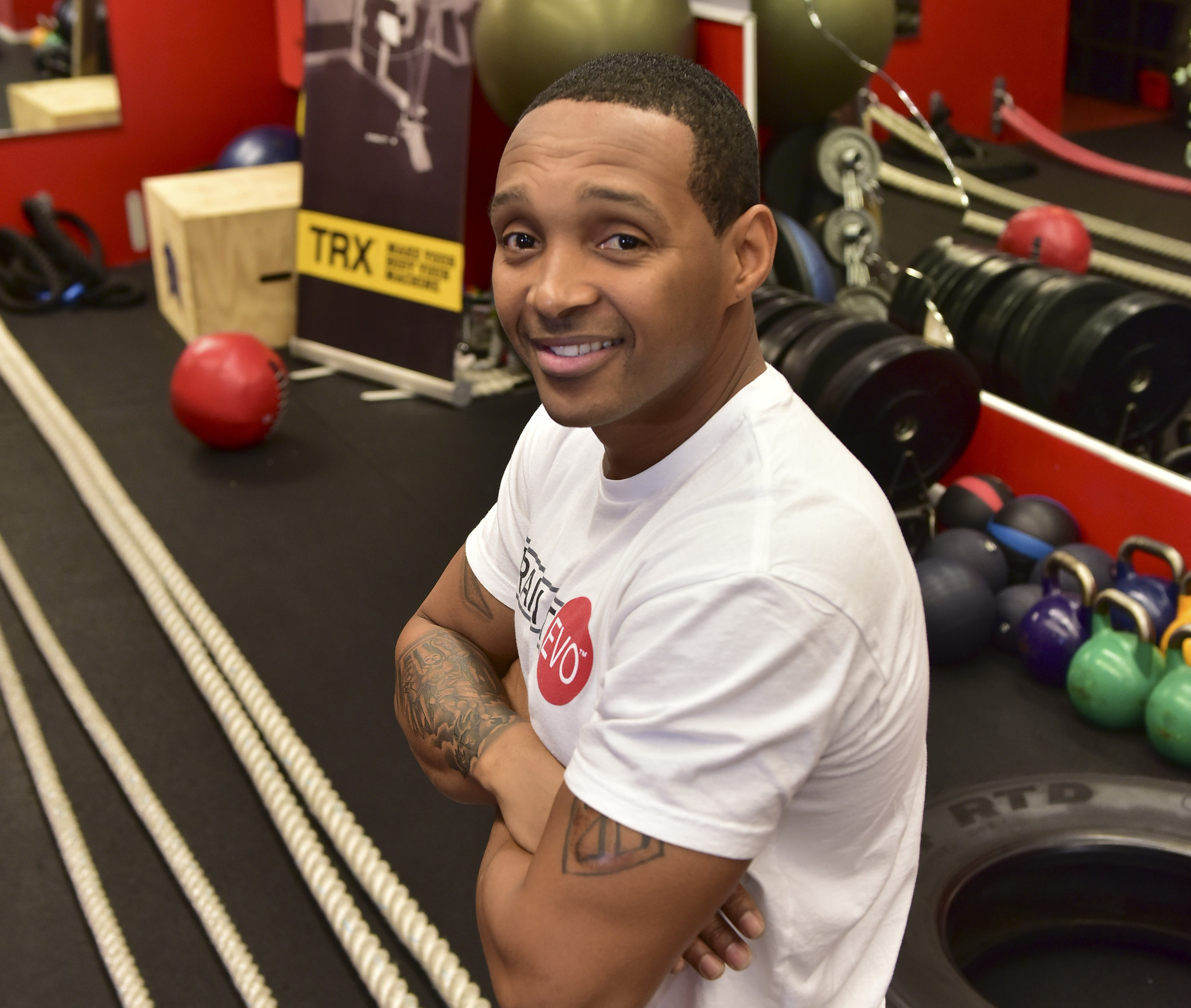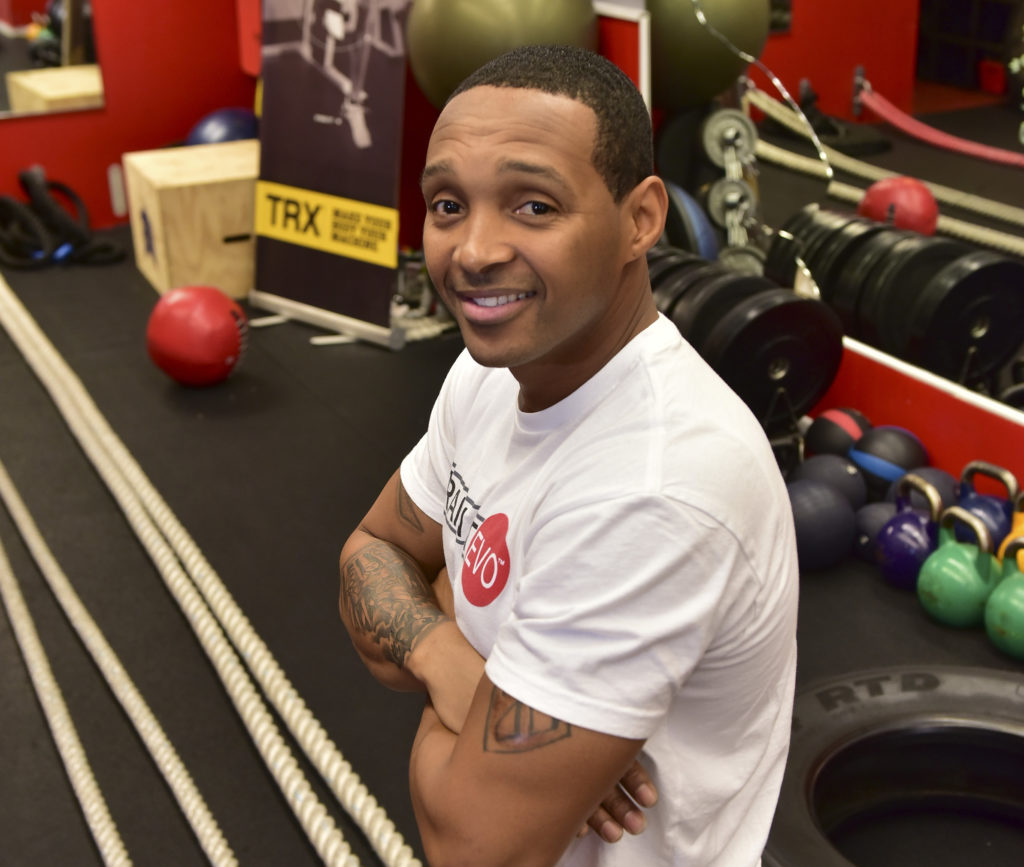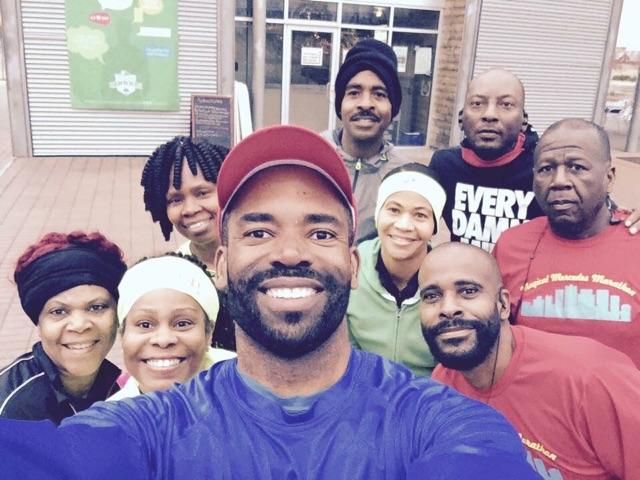
By Ariel Worthy
The Birmingham Times

Forget those New Year’s resolutions, said Curtis Starks, owner of EVO Fitness Training in downtown Birmingham. Instead, make conscious decisions to change your lifestyle.
Many people focus on making resolutions, but Starks suggests a better way to start the year.
“Sit down, figure out what’s important to you, and make that your goal. Instead of calling it a resolution, say to yourself, ‘At the beginning of the year, I’m going to start my journey,’” he said. “The only excuse in 2017 is that you just don’t want to do it. Let’s just get rid of the word resolution and call it what it is—a life journey.”
Jerri Haslem, co-founder of the Birmingham-based Black People Run Bike and Swim, a group of diverse members that promote fitness activities for African-Americans, agreed.
“You don’t have to go and get fit in a day,” she said. “It is indeed a lifestyle, and it’s a journey. When people get fit because they’re going on vacation, going to a class reunion, going to see their ex-spouse, they don’t do it for themselves; they do it for someone or something else. Until you internalize that this is something you want to do, it’s never going to happen.”
Be Specific
About 45 percent of Americans make New Year’s resolutions, and only 8 percent keep them, according to Statistic Brain.
The number-one resolution: lose weight. That shouldn’t be the goal, however, the top priority should be to get fit and healthy.
“Losing weight is a by-product of getting fit,” Haslem said. “You have to spell out what you want to do. Getting fit is too general.”
There’s nothing wrong with moderation, such as having a piece of pie. “The problem is eating the whole pie,” Haslem said. “It’s the discipline that many people lack.”
Be Realistic
Unrealistic weight goals are why many give up on resolutions, Starks said.
“They’re not seeing the results as quickly as they think they should,” he said.
Starks encourages people to set achievable goals.
“If you come into January thinking, ‘I’m going to lose 20 pounds,’ you’re not. A simple pound a week or four to six pounds a month [is more realistic],” he said. “People expect to lose 20 pounds in a month. When February 1 hits, they’ve lost only five pounds—and that’s when they quit. It’s not that they’re not on track, it’s that they’re not moving as fast as they want to move and don’t see the results they want to see.”
Be Active
Physical exercise does more than help you lose weight; it also helps with mental health, said Marion Wallace, PhD, assistant professor at the University of Alabama at Birmingham (UAB) School of Medicine’s Department of Psychiatry.
“When you exercise, your body releases endorphins, you’re less stressed, and that relates to your mental health. When you feel better, you do more,” she said. “But that’s not an excuse to say, ‘I’m depressed so I can’t do anything until I feel better.’ If you do stuff, you’ll feel better, and vice versa. You’re more likely to engage in social activities with friends; to do things by yourself; to go out and appreciate nature and the environment and really let your senses live.”

Be Patient
Patience is also a key, Haslem said.
“You can say you want to lose 18 pounds. Well, you’re not going to do it in three days,” she said. “You didn’t gain 18 pounds in three days, so to lose that much weight in three days is ridiculous. You’re putting your body in shock.”
Give yourself time to make changes, Haslem said, such as seven to 10 days to get comfortable with adding or subtracting an item, like eliminating sodas, for instance.
“You don’t want to say you’re going to drop all sodas, drink only water, and go to the gym three days a week. You’re pushing your body overload,” she explained. “When you have a checklist of 20 things to do, you’re going to exhaust your body. Give yourself one thing to focus on: eliminate a soda a day.”
Be Consistent
Most of all, Starks said, remain consistent.
“You can’t say ‘OK, I’m going to eat well for four weeks and not eat well for two weeks.’ You have to stick with it,” he said.
Accountability helps, Starks said.
“[At EVO], we do small groups, about one to four people at a time. Results improve because now people have accountability buddies, and they have these cliques they bond with. You have to create a culture for yourself and your household.”




